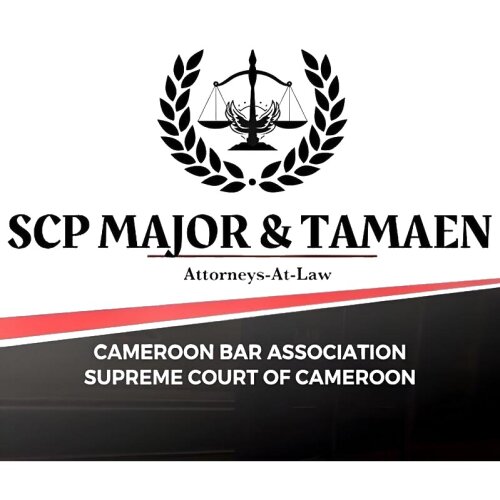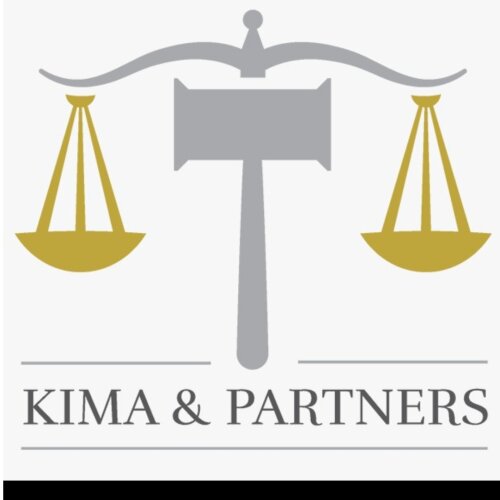Best Acquisition / Leveraged Finance Lawyers in Yaoundé
Share your needs with us, get contacted by law firms.
Free. Takes 2 min.
List of the best lawyers in Yaoundé, Cameroon
About Acquisition / Leveraged Finance Law in Yaoundé, Cameroon
Acquisition and leveraged finance describes the legal and financial aspects of funding significant business acquisitions, such as mergers, takeovers, or purchase of assets, particularly when these transactions rely on borrowed money. In Yaoundé, Cameroon, this area of law supports both local and international investors seeking to acquire companies or assets, often with intricate financing arrangements. This sector includes structuring the deal, minimizing legal risks, drafting contracts, and ensuring compliance with applicable laws and regulatory frameworks. Financing can involve a mix of loans, bonds, or other capital sources, and it often requires careful negotiation between borrowers, lenders, and stakeholders to protect interests and guarantee regulatory compliance.
Why You May Need a Lawyer
Legal expertise is critical in acquisition / leveraged finance transactions due to their complexity, high value, and potential exposure to risk. Here are common situations in which you may need a lawyer in Yaoundé:
- You plan to acquire a business using borrowed funds and need to structure the transaction to minimize risk.
- You are a local or international lender seeking to protect your interests when providing financing for an acquisition.
- You need due diligence to identify potential legal, financial, or tax liabilities connected to a target business.
- You are negotiating loan or facility documents and require contract review or drafting.
- You must ensure the transaction complies with Cameroonian and regional regulatory requirements, such as those set by the Central African Economic and Monetary Community (CEMAC).
- You face post-acquisition disputes related to warranties, indemnities, or payment terms.
- You need advice on securing collateral or enforcing loan agreements in case of default.
Local Laws Overview
Acquisition / leveraged finance in Yaoundé, Cameroon is governed by a blend of domestic legislation and regional frameworks, given Cameroon’s membership in key economic and legal bodies. Here are notable aspects:
- OHADA Uniform Acts: The Organization for the Harmonization of Business Law in Africa (OHADA) sets uniform rules on company law, secured transactions, insolvency, and contracts, directly affecting acquisition finance deals.
- CEMAC Regulations: The Central African Economic and Monetary Community regulates banking, capital movements, and financial transactions, including foreign exchange rules relevant to cross-border deals.
- Cameroon Commercial Code and Civil Code: These set out the contractual, corporate, and debt enforcement principles applicable to local transactions.
- Banking Regulation: The central bank (BEAC) oversees financial institutions and enforces rules on lending and financial instruments. Specific authorization may be needed for certain transactions.
- Investment Codes: Laws exist to stimulate foreign direct investment and protect investor rights, and they may offer incentives or impose specific requirements in acquisition finance situations.
- Foreign Exchange Controls: There are restrictions and approval requirements on moving funds across borders, which can affect acquisition finance structures involving foreign parties.
- Taxation: Proper structuring is essential to manage stamp duties, VAT, and other taxes applied during acquisitions or related financing arrangements.
Frequently Asked Questions
What is the difference between acquisition finance and leveraged finance?
Acquisition finance refers to funding used to purchase another business or its assets. Leveraged finance is a broader term for financing that uses significant borrowed money (leveraging), often involving higher risk, typically to increase potential returns. In practice, leveraged finance is commonly used for acquisitions, especially when the target company’s assets serve as collateral for the loan.
Who are the main parties involved in an acquisition finance transaction?
The main parties include the buyer (acquirer), seller (target company or its shareholders), lenders (financial institutions or investors providing finance), and sometimes guarantors or security providers. Legal and financial advisors also play crucial roles.
Are there restrictions on foreign investors participating in acquisition finance deals in Cameroon?
Foreign investors are generally welcome but must comply with local investment rules, including registration requirements and adherence to CEMAC foreign exchange controls. Some strategic sectors may have additional restrictions.
How long does a typical acquisition finance transaction take to complete?
While timelines vary based on deal complexity, due diligence, and regulatory approvals, a standard acquisition finance deal may take several months from initial negotiations to final closing in Yaoundé.
What are the key risks in acquisition / leveraged finance transactions?
Risks include changes in regulatory policy, foreign exchange fluctuations, failure to meet loan covenants, hidden liabilities in the acquired company, and challenges enforcing collateral or security interests under local law.
Can collateral be used to secure acquisition or leveraged finance in Cameroon?
Yes. Under the OHADA Uniform Act on Security Interests, various types of collateral can be used, such as shares, real estate, or moveable property, provided proper registration and perfection of security interests are made.
Is it necessary to use a local bank or lender for financing in Cameroon?
It is common and often recommended to work with local banks familiar with the regulatory landscape. However, foreign banks can participate, particularly in syndicated deals, subject to CEMAC and BEAC approval.
What is the typical process for regulatory approval in acquisition finance deals?
The process may involve seeking clearance from competition authorities, investment promotion agencies, and sectoral regulators, as well as compliance with BEAC foreign exchange approvals for cross-border payments.
How can loan agreements be enforced in Cameroon in case of default?
Enforcement of loan agreements is based on the Uniform Act on Simplified Recovery Procedures and Enforcement Measures of OHADA. Lenders can seek judicial enforcement, provided their security interests are properly registered.
Are there tax implications for acquisition or leveraged finance?
Yes. Tax considerations include possible stamp duties, capital gains tax, VAT on some transactions, and withholding tax on interest paid to foreign lenders. Proper planning is crucial to avoid unexpected tax liabilities.
Additional Resources
For further information or assistance with acquisition / leveraged finance in Yaoundé, the following resources may be helpful:
- OHADA National Commission: Provides guidance on business law applicable across member states, including Cameroon.
- Central Bank of Central African States (BEAC): Regulates monetary policy, banking, and approval for cross-border financial transactions.
- Ministry of Finance (MINFI): Offers information on investment incentives, tax issues, and regulatory changes.
- Cameroon Investment Promotion Agency (CIPA): Assists foreign and domestic investors on registration, permits, and incentives.
- L’Agence de Régulation des Marchés Publics (ARMP): Monitors compliance with public procurement and acquisition procedures.
- Private Legal Practitioners and Bar Associations: Offer expert advice tailored to acquisition / leveraged finance transactions.
Next Steps
If you are considering an acquisition or leveraged finance transaction in Yaoundé, Cameroon, take the following steps:
- Identify your objectives and outline the key drivers for the transaction.
- Engage a legal advisor experienced in acquisition / leveraged finance law in Cameroon.
- Begin preliminary discussions with potential lenders, investors, or acquisition targets.
- Conduct or request in-depth legal and financial due diligence.
- Review and negotiate all contractual documents, ensuring alignment with local laws and the requirements of the relevant authorities.
- Submit any required applications or notifications to regulators such as BEAC or investment promotion agencies.
- Arrange for the proper registration of security or collateral interests under OHADA rules.
- Finalize agreements and complete the transaction, ensuring all legal, tax, and compliance needs are met.
Consulting with a lawyer from the very beginning is strongly advised to avoid costly mistakes, ensure regulatory compliance, and protect your interests throughout the process.
Lawzana helps you find the best lawyers and law firms in Yaoundé through a curated and pre-screened list of qualified legal professionals. Our platform offers rankings and detailed profiles of attorneys and law firms, allowing you to compare based on practice areas, including Acquisition / Leveraged Finance, experience, and client feedback.
Each profile includes a description of the firm's areas of practice, client reviews, team members and partners, year of establishment, spoken languages, office locations, contact information, social media presence, and any published articles or resources. Most firms on our platform speak English and are experienced in both local and international legal matters.
Get a quote from top-rated law firms in Yaoundé, Cameroon — quickly, securely, and without unnecessary hassle.
Disclaimer:
The information provided on this page is for general informational purposes only and does not constitute legal advice. While we strive to ensure the accuracy and relevance of the content, legal information may change over time, and interpretations of the law can vary. You should always consult with a qualified legal professional for advice specific to your situation.
We disclaim all liability for actions taken or not taken based on the content of this page. If you believe any information is incorrect or outdated, please contact us, and we will review and update it where appropriate.











